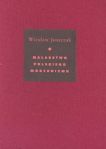Couperin may have been a contemporary of J.S. Bach, but his life stands in marked contrast to that of the great German. A court composer who worked at the fashion capital of the 18th century, Versailles, he was known as a trendsetter -- the author of a stylish and refined style where virtuosity and good taste worked in happy coexistence.
This is nowhere better exemplified than in his Les Nations, four trio pieces consisting of a sonata followed by a suite. While three of the Italianate sonatas were composed long before their publication date (1726), Couperin rejects his cultivation of Les Gouts-réünis -- a fusion of the two most important styles of that period, French and Italian -- for the dances. Here, instead, he opts for an overtly French idiom, one where expression and form are one and the same.
Performing Les Nations are the acclaimed early music group Musica ad Rhenum, an ensemble which aims to move, amuse and delight audiences through blending an informed historical perspective with a lively artistic spirit. Using contemporary instrumentation as well as metronome indications and marked freedom of tempo -- typical traits of the French style at that time -- Jed Wentz directs some highly charged performances.
Other information:
- Historically informed recording made in 2004.
- Musica ad Rhenum and Jed Wentz play these pieces in chamber music setting, for several string and wind instruments, in the "Authentic Performance Practice", on period instruments.
- This set is a separate issue from the Complete Chamber Music of Couperin by Musica ad Rhenum, a set which received excellent reviews in the international press, e,g. a Diapason d'Or, and Musicweb wrote: "impressive..Delicious...wonderful. Recordings are clear and beautifully focused..."
- Booklet note by Jed Wentz.
Ciężar
0.11
Autorzy
Musica Ad Rhenum, Jed Wentz
Format
14.0x12.0cm
Oprawa
Plastikowa
Rok wydania
2012
Dla tego produktu nie napisano jeszcze recenzji!
Napisz recenzjęWłaściciel sklepu internetowego nie gwarantuje, że publikowane opinie pochodzą od konsumentów, którzy używali danego produktu lub go kupili.


















